Solar energy is one of the most popular forms of renewable energy, and it’s no wonder why. Solar energy is a clean, renewable resource that can be used to power your home or business. In this blog post, we’re going to talk about the benefits of solar energy, how it works, and how to choose a solar equipment installer. We’ll also touch on the future of solar energy and some frequently asked questions about solar energy installation.
The Benefits Of Solar Energy
Solar energy is a renewable resource that has many benefits for the workplace. Solar energy can be used to generate electricity, heat water, and provide space heating and cooling. Additionally, solar energy can be used to power transportation. This means that solar energy does not produce any pollution, which is a major benefit for businesses. Additionally, solar energy is often cheaper than other forms of energy.
The benefits of solar energy go beyond the workplace. Solar energy can also be used to generate electricity, heat water, and provide space heating and cooling in homes. Additionally, solar energy can be used to power transportation. This means that solar energy does not produce any pollution, which is a major benefit for businesses and homeowners. In many cases, solar energy is also cheaper than other forms of energy.
How Solar Energy Works
In this blog, we will be discussing how solar energy works. Solar PV cells convert sunlight into electricity, which powers our homes and businesses. The more solar panels you have, the more electrical power you can generate. This is why it’s important to take care of your solar equipment so that it can continue to function for years to come.
Solar PV systems are also great for powering a business or institution. For example, a hospital might use solar power to reduce their dependence on fossil fuels. Additionally, solar PV systems can help businesses save money on their energy bills by reducing their need for grid power.
What are the different types of solar PV cells?
There are a few different types of solar PV cells that can be used for generating electricity, including P-type, S-type, CdTe, and CIGS.
P-type cells are more common and they work best in warmer climates because they produce more power during the day. S-type cells are good for colder climates because they produce less heat.
CdTe and CIGS cells are both newer technologies and they generate a lot of energy when light hits them directly, rather than reflecting off other surfaces. This makes them good for use in buildings where direct sunlight is not available.
The Cost Of Solar Energy
The cost of solar energy has fallen significantly in recent years, making it an increasingly viable option for both homeowners and businesses. There are multiple financing options available to make solar more affordable, and the installation process is straightforward. In addition, solar can save you money on your electric bill, providing a sustainable source of income. Additionally, solar is a good investment for your home – not only does it provide you with clean energy, but it also preserves valuable space in your home. So whether you’re looking to save money or reduce your carbon footprint, solar is a great choice!
Solar energy is a renewable resource that has been growing in popularity due to its many benefits. Solar panels convert sunlight into electricity, and this process can be done using traditional or innovative technologies. Solar energy is considered a “green” source of energy, and it has the potential to reduce our dependence on fossil fuels. In addition, solar panels are resilient – they can withstand weather fluctuations and damage.
There are many different financing options available for solar installation, from government programs like the SunShot Initiative to private loans and grants. The average cost of installing a solar system has fallen by nearly 50% since 2010, making solar more affordable than ever before. Installation costs vary depending on the type of system you choose, but the average price tag is around $16,000. You may also be able to receive tax credits or other subsidies that lower your overall cost even further!
Solar can provide you with clean energy – without relying on Fossil Fuels – while also preserving valuable space in your home. Not only is solar an environmentally friendly option; it’s also reliable and affordable!
The Future Of Solar Energy
The future of solar energy is bright. Solar equipment is becoming more efficient and less expensive, making it an increasingly viable option for energy production. Additionally, the increasing interest in solar energy among homeowners has led to a growing market for this type of energy. Solar energy can help reduce greenhouse gas emissions, which are a major contributor to climate change. So not only is the future of solar energy bright, but it’s also very exciting!
How To Choose A Solar Equipment Installer
When you are looking to install solar equipment, it is important to choose a reputable installer. Look for an installer who is accredited by a professional body such as the National Solar Accreditation Scheme (NSAS) or the Clean Energy Council (CEC). Additionally, make sure that the installer has insurance cover in case something goes wrong during installation. Ask around for recommendations from friends or family who have had solar equipment installed. Finally, get quotes from a few different installers to compare prices.
When choosing a solar installer, it is important to consider the size of your installation and the type of equipment you are installing. For smaller installations, an installer who is NSAS or CEC accredited may be all you need. For larger installations, however, it is recommend that you get quotes from several installers to get the best deal. It is also important to consider the quality of service provided by the installer. Look for an installer who is responsive and offers good customer care.
The Best Solar Equipment Installers In Your Area
If you’re looking to save money on your electric bill and help the environment in the process, then a solar equipment installer may be a great option for you. Solar equipment installers can help reduce emissions from power plants, which is good for the environment. Additionally, solar equipment installers are easy to install and maintain, so you won’t have to worry about any hassle during or after installation. You can also find solar equipment installers in your area that offer free estimates so that you can get started without any hassles.
Even if you don’t live in an area that is blessed with good weather for solar installation, there are still many benefits to consider when choosing a solar equipment installer. Solar equipment installers can help ensure your home or business is prepared for the future by installing new solar panels and other renewable energy systems. Additionally, they offer expert advice on how to take advantage of government incentives and reduce your overall electric bill. If you’re looking to go green and save money at the same time, then a solar equipment installer should be at the top of your list.
Frequently Asked Questions About Solar Energy Installation
If you’re considering installing solar energy, here are some answers to the most frequently asked questions.
1. What is solar energy? Solar energy is the process by which sunlight is converted into usable electricity.
2. Why should I install solar energy? There are many reasons to install solar energy, including the fact that it’s a great way to save on your energy bill and it’s environmentally friendly.
3. How does solar power work? Solar power works by using the sun’s rays to turn water or other substances into steam, which then powers an electric generator. This electricity can be used to run appliances in your home or office, or it can be exported to the grid for use by other people or businesses.
4. How much will installing solar equipment cost me? The cost of installing solar equipment will vary depending on factors such as location and size of your home, type of system being installed, and whether any government incentives are available (such as tax credits). However, in general you’ll likely pay less for installation than you would for monthly utility bills based on average U.S. usage patterns.
5. Are there any risks associated with installing solar energy systems? Yes – but they’re generally minor and well worth taking into account before making a decision about whether or not to install a system. These risks include potential damage from weather conditions (such as hurricanes), malfunctioning panels/equipment, theft/theft of materials/money during installation, and lawsuits arising from injury caused by faulty equipment/panels.
The Cat In The Hat
Solar equipment is a great way to save on your energy bill and help the environment. Solar equipment can also be a wise investment for any home owner. In addition, solar equipment is a great way to increase the value of your home. By installing solar equipment, you will be helping to reduce greenhouse gas emissions and saving money in the long run.There are a few different types of solar equipment that can be installed on your home. One common type of solar equipment is a photovoltaic (PV) system. A PV system uses light to generate electricity from the sun. This type of system is very energy efficient and can help you save money on your energy bill. In addition, a PV system can increase the value of your home because it generates its own power.Another type of solar equipment is called a thermal-electric (TE) panel. TE panels use heat to generate electricity from the sun. This type of system is more expensive than a PV system, but it has the advantage of being able to work in cold climates. In addition, TE panels are less likely to break than PV systems.There are also other types of solar equipment that are not typically thought about as solar devices, such as ground-mounted or rooftop storage systems. These systems allow homeowners to store their surplus energy in order to use it when they need it most, instead of selling it back into the grid.
In Conclusion
There are many benefits to solar energy, both for businesses and homeowners. Solar panels generate electricity from sunlight, which can then be used to power your home or business. Additionally, solar energy is a renewable resource that helps reduce greenhouse gas emissions. Solar equipment is also becoming more efficient and less expensive, making it a great option for powering your home or business. If you’re interested in reducing your carbon footprint and saving money on your electric bill, then solar energy is a great option for you! Contact a reputable solar installer in your area to get started.


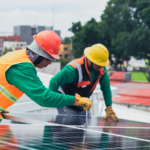
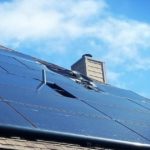
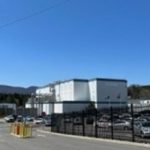
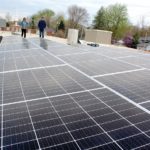
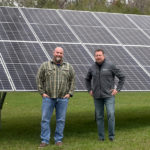
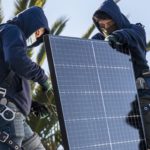
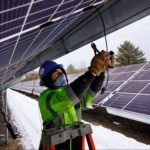
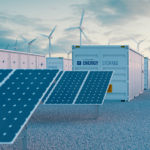
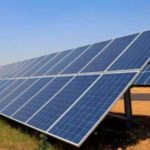


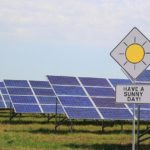
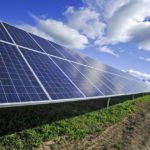

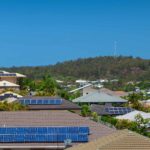
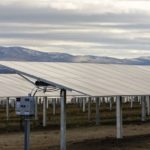




Recent Comments